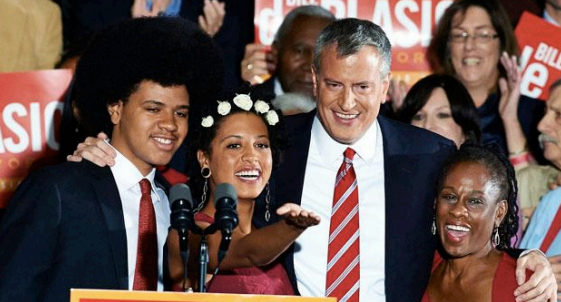
Elections for public officials across United States, including the New York City mayoral race, as well as for State Supreme Court Justice, were held last Tues. Nov. 5.
Democrat Bill de Blasio was voted the next mayor of New York City, claiming victory over the Republican Joe Lhota. The vote was a landslide with de Blasio having a 73 percent lead in votes over Lhota, with 24 percent of votes. Lhota, incumbent Mayor Michael Bloomberg, and President Obama congratulated de Blasio for his commanding win.
Mayor-elect de Blasio is the first elected Democratic mayor in the last twenty years. He is challenged to create a new idea for New York following the outgoing Mayor Bloomberg, of twelve years. Bloomberg may have made New York a very safe city, but the gap upper and lower class gap still remained. De Blasio will take office on Jan. 1 and expects the transition of power to be a smooth one.
As part of the general elections there were several amendments that were also part of the voting ballot. The New York State Casino Amendment is one of the most talked about changes to state law. This amendment alters the state construction of casinos to allow up to seven non-Indian casinos to be constructed across the state.
“I didn’t even realize that there was a limit on the number of casinos that could be constructed,” senior information technology major JJ Gentile said. “It really doesn’t affect me all that much but I think that it could be a good thing for the state.”
Students at Pace who were eligible and registered to vote took part in the general elections of last week. With some students from the city or commuters that still live there during the year, the idea of a new mayor of New York City has presented great discussion.
“De Blasio seems like a nice guy, but in my opinion it is not the mayor that needed fixing,” a Pace student wishing to remain anonymous said. “Nothing can be worse than Cuomo. I just hope that the two democrats don’t gang up and cause more problems.”
Although many of Pace’s students are eligible to vote whether or not students or society at large will take the initiative to go out and engage in civic duty is an entirely different question. Those who vote determine how the results are shown and how the changes in politics are made.
